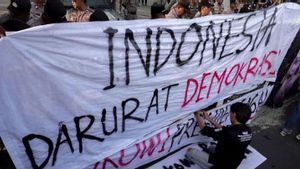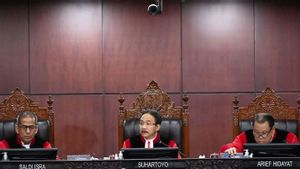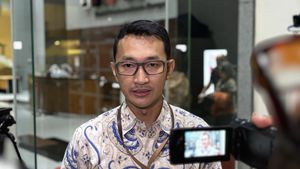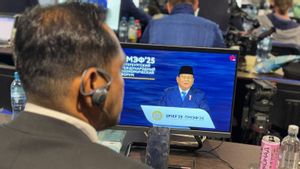Political observer of the University of Jember (Unej) Dr M. Iqbal considers that the decision of the Constitutional Court (MK) to abolish the threshold for presidential candidacy or presidential threshold is the most beautiful gift for Indonesian election democracy.
"The news is a special gift to start the new year 2025 or the first quarter of President Prabowo Subianto's administration and Vice President Gibran Rakabuming Raka," he said in Jember Regency, East Java, Saturday.
According to him, the long struggle of traditional prodemocracy activists by submitting more than 30 judicial reviews regarding the threshold seems to have paid off.
"Now every political party participating in the election can freely nominate its best cadres or anyone deemed worthy of a contest in the 2029 Presidential Election (Pilpres) without being forced or forced to rely on parties that dominate electoral votes," he said.
For political parties that have seats in parliament or who have votes, even new political parties who qualify to participate in the election, they will have the same right to nominate pairs of presidential/vice presidential candidates.
SEE ALSO:
"The voters also have many choices of candidates, so it is not limited to only two pairs of candidates as in the three 2014 to 2024 presidential elections," said Iqbal, who is also a political communication expert.
Although without a threshold, he continued, the 2029 election will not automatically be followed by a pair of presidential candidates as many as the number of parties participating in the election, for example, currently there are 18 parties and the possibility of increasing to 20 to 25 election participants, does not mean there will be 25 pairs of presidential candidates.
"For political parties preparing the best figure is not an easy figure. The considerations are very complex, ranging from ethics, capacity, popularity and electability, to cash balance, so that rationality and primordiality as well as party pragmatism will be tested for coalition or firmness in nominating themselves," he said.
In terms of political communication, he said, the Constitutional Court's decision was actually a strong construction of an anticipatory message or preventing the recurrence of the stagnation of the executive election contestation with the fact that there had been a wholesale action of party recommendations, to creating acute polarization in society.
"The final and binding Constitutional Court decision can be considered to undermine the desire for potential abuse of power, the dominance of power over the nomination process for the presidential election. Each party finally has the same power and bargaining position," he said.
Iqbal explained that the Constitutional Court's decision was only limited to refreshing the oxygen of election democracy, not immediately changing the entire climate of Indonesian democracy.
"The Constitutional Court's decision should be a strong whip thatcuts the nation and all political elites, as well as civil society to continue to be more wary of democracy and obey the constitution," he said.
The FISIP Unej lecturer said that the public should highly appreciate the Constitutional Court, which is again the final guard and binds to the dignity of democracy and the constitution in Indonesia.
The English, Chinese, Japanese, Arabic, and French versions are automatically generated by the AI. So there may still be inaccuracies in translating, please always see Indonesian as our main language. (system supported by DigitalSiber.id)
















